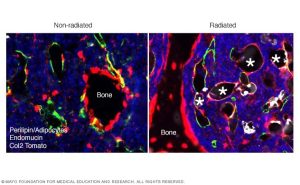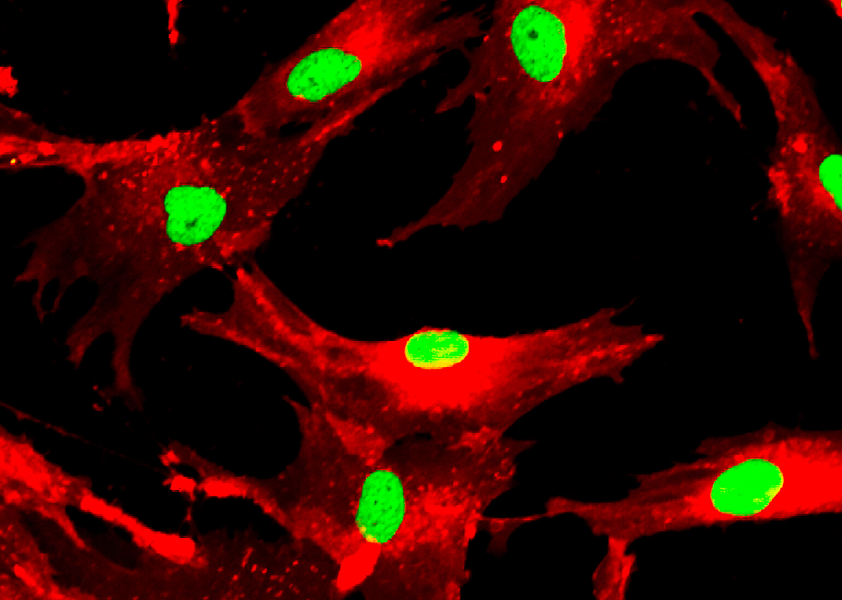The discovery of mesenchymal cells is attributed to several scientists and researchers in the field of developmental biology and cell biology. The term “mesenchyme” was first used in 1868 by Wilhelm His Sr. to describe the embryonic connective tissue in vertebrates. In the early 20th century, developmental biologists such as Alexander Maximow and Paul Ehrlich further defined the characteristics of mesenchymal cells and their role in embryogenesis. In recent years, researchers in the fields of regenerative medicine and stem cell biology have also made significant contributions to our understanding of mesenchymal cells and their potential for therapeutic use.
Where MSCs are found?
Mesenchymal Stem Cells(MSCs) are a type of adult stem cell that has the ability to differentiate into various cell types, including osteoblasts (bone cells), chondrocytes (cartilage cells), and adipocytes (fat cells). MSCs are found in many tissues in the body, including bone marrow, adipose tissue, and umbilical cord tissue. They are also known for their immunosuppressive properties, which has made them a subject of interest in the field of regenerative medicine.

Human Mesenchymal Stem Cells
Mesenchymal stem cells (MSCs) are a type of adult stem cell that has the ability to differentiate into a variety of cell types, including osteoblasts (bone cells), chondrocytes (cartilage cells), and adipocytes (fat cells). MSCs can be isolated from a variety of tissues, including bone marrow, adipose tissue, and umbilical cord tissue. They have been studied for their potential use in regenerative medicine and have been shown to have anti-inflammatory and immunosuppressive properties. They are being investigated in various preclinical and clinical trials for the treatment of diseases such as osteoarthritis, multiple sclerosis, and graft-versus-host disease. However, more research is needed to fully understand their mechanisms of action and their potential therapeutic use.
Characteristics of Mesenchymal Cells
The main characteristics of MSC are:
- Multipotency: The ability to differentiate into various cell types.
- Self-renewal: The ability to divide and produce more MSCs.
- Immunosuppression: The ability to suppress the immune response
- They are non-hematopoietic (non-blood forming)
- They are negative for markers of hematopoietic stem cells, such as CD34 and CD45
- They express markers of mesenchymal cells, such as CD73, CD90, and CD105.
The function of Mesenchymal Cell
Mesenchymal stem cells (MSCs) are a type of adult stem cell that can differentiate into various cell types, including osteoblasts (bone cells), chondrocytes (cartilage cells), and adipocytes (fat cells). They can also differentiate into cells that give rise to various tissues such as ligament, tendon, and muscle and marrow stroma. In addition to their differentiation potential, MSCs also have immune-modulatory properties and can secrete various growth factors and cytokines that promote tissue repair and regeneration. MSCs have been investigated for their potential in regenerative medicine and tissue engineering, as well as for their use in treating a wide range of diseases, such as osteoarthritis, and heart disease.
| Source | Proliferation rate | Doubling time | Immunogenicity | MSCs Phenotypes |
| Bone Marrow | Lowest | 40 days | Medium | Stro-1, CD271, SSEA-4, CD146 |
| Adipose Tissue | higher | 5 days | High | CD271, CD146 |
| Umbilical cord | medium | 30 days | High | CD146 |
MSCs and MSC-derived Extracellular Vesicles.
The idea of “adult” MSCs, initially articulated by Kaplan, arose in conjunction with the concept of cell genesis in the embryonic mesoderm. Despite the fact that it does not precisely correlate to the scientific description of MSCs, this word is nonetheless commonly used by clinicians and scientists today. Because of the many ways used to acquire and culture stem cells, the dispute on the exact criteria used to define MSCs is quite controversial. Because these cells can be recovered from practically any tissue, it has been hypothesized that MSCs from diverse origins may be sufficiently unique to be classified as a discrete entity.
MSC-derived extracellular vesicles (EVs) are small, membrane-bound vesicles that are released by MSCs into the surrounding environment. EVs contain various biomolecules, such as proteins, lipids, and nucleic acids, and have been shown to have biological activity. They play an important role in intercellular communication and are involved in various physiological and pathological processes.
Recent studies have suggested that MSC-EVs may have therapeutic potential in the treatment of a variety of diseases and injuries, including inflammation, cancer, and injury to the heart and brain. However, more research is needed to fully understand the mechanisms of action of MSC-EVs and to develop safe and effective therapeutic strategies for their use.
Mesenchymal Cell Therapy
Mesenchymal cells are being studied for their potential to treat a wide range of diseases and conditions, including osteoarthritis, heart disease, and certain types of cancer. Research is still ongoing, but the results of preclinical and clinical studies have been promising. Some study has shown how the cell can migrate to damaged or diseased tissue and promote tissue regeneration. Blood is taken from a vein and flowed through a machine that eliminates the undifferentiated cells and gets the remaining blood and plasma once again to the patient. Bone marrow undifferentiated organisms are gathered from the giver in an operating room. Undeveloped cells are collected through a needle put in the soft focus — or marrow — of the bone.
